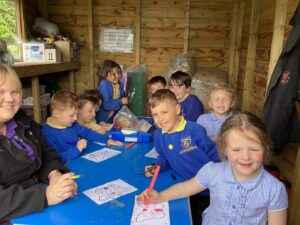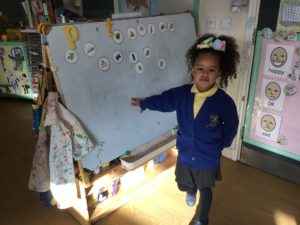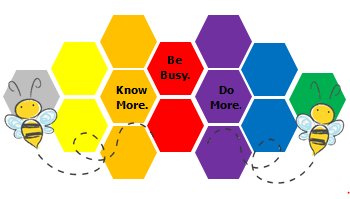Early Reading (Phonics)
The Vision of Reading
At Devonshire, we are committed to providing great reading provision and developing pupils’ proficiency in, and love of, reading. We ensure that all children have the skills, knowledge and understanding to become confident and enthusiastic readers and writers.
We believe that high-quality phonics teaching improves literacy levels and gives all children a solid base on which to build and develop their reading habits so that they read widely and often.
The programme we have chosen supports our intentions to teach children to read and write independently so that they are able to access a broad and exciting curriculum and flourish as learners throughout their time at our school.

How We Teach Reading
Through daily, systematic and consistent high-quality phonics teaching, children learn to blend and segment words for reading and spelling. To allow our children to develop a strong phonic awareness and effective blending, decoding and comprehension skills, we have chosen to use a DfE Validated synthetic phonics programme called FFT Success for All Phonics.
Each session gives an opportunity for children to revisit their previous experience, learn new skills, practise together, apply what they have learned and celebrate their achievements. It follows the teaching principles of:
- Revisit and Review
- Teach and Model
- Practise and Apply
- Celebrate Achievement and Assess
The decodable shared readers run alongside the program and match to the phonic sounds that the children have been learning. There are also sets of further readers for those children that struggle with the amount of text.
Lessons are planned so that children build on their skills sequentially and systematically and will be adapted and modified to meet the differing needs of the children if required.
The phonics programme is part of a comprehensive package of programmes which we use to support a mastery approach to phonics and early reading. The FFT Success for All programmes (Phonics, Shared Reader, Tutoring with the Lightning Squad and Reading Assessment Programme (RAP)) complement each other in highly effective ways and provide the tools that all our staff need to develop competent, fluent early readers, preparing the way for passionate and successful lifelong reading.

Reading at Home
- Access the FFT shared reader parent portal by visiting https://parents.fft.org.uk (pass code – 4q6vtf).
- Read to your child and always discuss the story you are reading to try to build your child’s comprehension skills and understanding.
- Listen to your child read. Find a quiet time to hear your child read and use lots of praise to encourage them.
- Practise the sounds they know at home.
- Make use of your local library. Children love going to the library and having access to such a huge, diverse range of books.

Useful Websites
- https://parents.fft.org.uk (pass code – 4q6vtf)
- https://readingeggs.co.uk
- https://www.phonicsplay.co.uk


